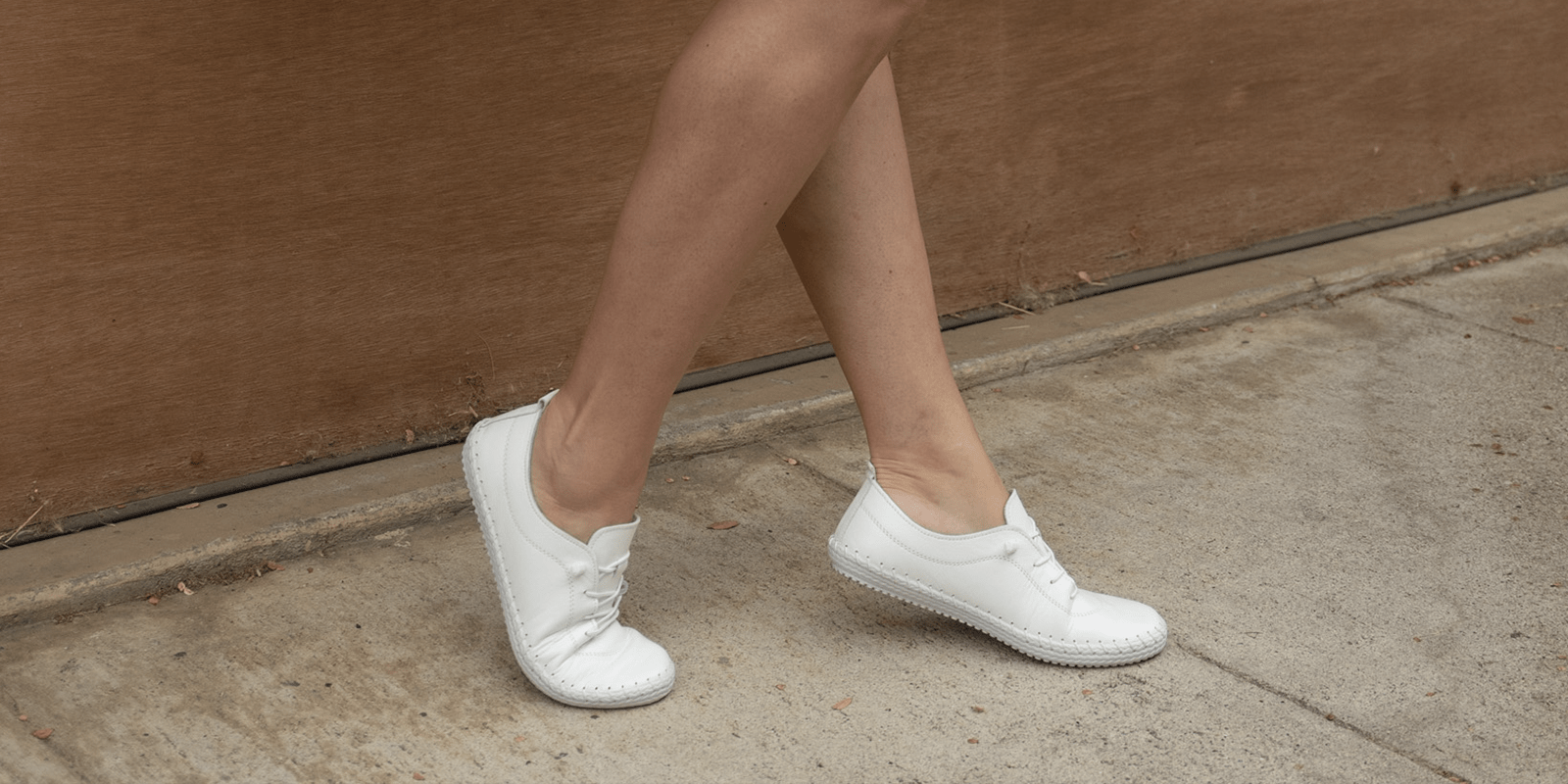Pregnancy brings a whirlwind of changes, not just emotionally and physically, but also in the daily choices we make - right down to our footwear. It's a time when comfort becomes paramount, yet the desire to stay stylish remains. This is where the art of selecting the perfect pregnancy shoes becomes vital. In this blog, we'll explore why the right shoes are essential during pregnancy, focusing on comfort, style, and health.
Will Wearing Shoes Help Swollen Feet?
During pregnancy, your body undergoes numerous changes, and one of the most noticeable changes occurs in your feet. Swelling, or edema, in the feet is a common experience for many expecting mothers. This swelling is primarily due to the increased volume of blood and fluids in your body, which are essential for supporting your growing baby. However, this extra fluid can accumulate in your feet and ankles, leading to noticeable swelling and discomfort.
Understanding Edema in Pregnancy
Edema during pregnancy is not just limited to the feet; it can also affect the ankles and legs. This swelling is usually more pronounced during the later stages of pregnancy and can be exacerbated by factors such as prolonged standing, low potassium levels, high caffeine consumption, and high sodium intake. While it's a common and usually harmless condition, understanding and managing it is crucial for your comfort and health.
The Role of Shoes in Alleviating Discomfort
The choice of footwear plays a pivotal role in managing foot swelling during pregnancy. Wearing the right kind of shoes can make a significant difference in your comfort levels.
Key Features of Suitable Shoes
- Adjustable Straps: Shoes with adjustable straps are ideal as they allow you to modify the fit based on your current foot size, accommodating swelling that can vary from day to day.
- Cushioned Soles: Cushioned soles help absorb shock and reduce the pressure on your feet as you walk, making each step more comfortable.
- Breathable Materials: Shoes made from breathable materials such as canvas, mesh, or soft leather can help keep your feet cool and reduce sweating, which is particularly important when dealing with swelling.
- Wide Toe Box: A wider toe box gives your feet more space to spread out, reducing compression and discomfort.
- Low Heels: Opt for shoes with a low heel or flat soles to distribute your weight more evenly and reduce the strain on your feet.
- Arch Support: Good arch support in shoes can help distribute body weight more evenly, alleviating pressure on swollen feet.
Additional Tips for Managing Swollen Feet
- Elevate Your Feet: Whenever possible, take breaks to elevate your feet. This helps reduce swelling by improving circulation and fluid drainage.
- Stay Hydrated: Drinking plenty of water can help your body retain less fluid and reduce swelling in your feet.
- Exercise: Regular, gentle exercise such as walking or swimming can improve blood circulation and help reduce swelling.
- Avoid Tight Socks: Tight socks or stockings can restrict circulation and worsen swelling. Opt for looser, more comfortable options.
While swollen feet are a common aspect of pregnancy, wearing the right shoes can greatly alleviate discomfort. Shoes that offer support, comfort, and flexibility are key to managing swollen feet. Alongside choosing appropriate footwear, incorporating lifestyle changes such as staying hydrated, exercising, and elevating your feet can further help in managing this common pregnancy symptom. Remember, taking care of your feet during pregnancy is not just about comfort; it's an essential part of your overall health and well-being during this special time.
Why Are Heels Not Allowed During Pregnancy?
Heels and pregnancy are a mix best avoided. As your belly grows, your center of gravity shifts, making it harder to maintain balance. High heels, which can be challenging to balance in at the best of times, become a potential hazard during pregnancy.
Health Risks Associated with Heels
Apart from the risk of falls, heels can exacerbate back pain, a common complaint during pregnancy. They can also increase the strain on your legs and feet, leading to increased discomfort, especially in the case of swollen feet. Opting for flat or low-heeled shoes ensures safety and comfort, keeping you and your baby safe.
What Shoes Are Comfortable for Swollen Feet During Pregnancy?
Pregnancy is a transformative journey that demands special attention to comfort, especially when it comes to footwear. Swollen feet, a common symptom, require shoes that are not just good-looking but also provide exceptional comfort and support.
Prioritizing Comfort and Fit
Comfort should be at the forefront when selecting shoes for pregnancy. Shoes designed with extra room are ideal, as they accommodate the natural swelling of feet. Look for styles that have a wider toe box, offering more space and reducing the pressure on your feet. Additionally, shoes with soft materials and supportive insoles can significantly ease the discomfort of swollen feet. The goal is to find a pair that feels like a gentle hug for your feet, offering support without constricting them.
Brands Focusing on Comfort and Style
Some brands, such as "Your Shoes" by El Kosh, are renowned for their elegant European designs that do not sacrifice comfort. These brands often incorporate features like adjustable straps or laces, cushioned footbeds, and flexible soles that adapt to the changing shape of your feet. The fusion of style and comfort ensures that you can enjoy fashion-forward footwear without compromising on the well-being of your feet.
Importance of Material in Footwear
The choice of material in pregnancy footwear cannot be overstated. Natural, breathable materials such as leather or canvas are ideal as they allow air circulation, reducing the likelihood of swelling and preventing overheating. Synthetic materials, on the other hand, may trap heat and exacerbate foot discomfort.
The Need for Arch Support
Good arch support is another critical feature. Shoes with proper arch support help distribute weight evenly, reducing the strain on your feet and lower back. This can be particularly beneficial during pregnancy, as the extra weight and shifting center of gravity can lead to foot pain and discomfort.
Flexibility and Non-Slip Soles
Flexibility in shoes is also crucial. Shoes that bend and flex with your foot's natural movement are more comfortable, especially when you're dealing with swollen feet. Additionally, non-slip soles are a must for safety, providing stability and preventing slips and falls.
Limited Edition Comfort for Your Pregnancy Journey
Experience the unique blend of European elegance and unmatched comfort with "Your Shoes" by El Kosh. Our limited edition, handcrafted shoes are designed to cater to the specific needs of expectant mothers. Embrace this special time with style and comfort. Get yours now, while supplies last!



